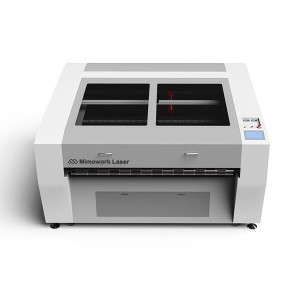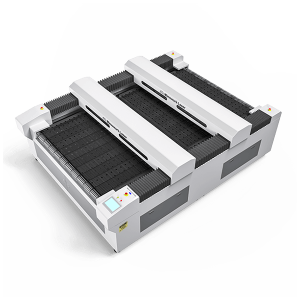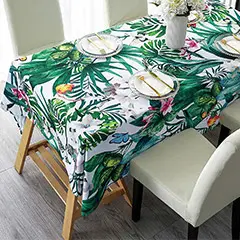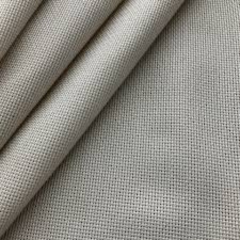Chenille Fashion Trends
Introduction
What is Chenille Fabric?
Chenille fabric is a sumptuously soft textile known for its distinctive fuzzy pile and velvety texture.
The name "chenille" (French for "caterpillar") perfectly captures its caterpillar-like yarn structure.
Chenille Fabric for Clothing has become a designer favorite for winter collections, offering exceptional warmth without bulk.
Its plush surface creates elegant drapes in cardigans, scarves, and loungewear, combining comfort with sophisticated style.
As a Soft Chenille Fabric, it surpasses many textiles in tactile comfort.
The secret lies in its manufacturing process - short fibers are twisted around a core yarn, then carefully cut to create that signature cloud-like softness.
This makes it ideal for baby garments, luxury robes, and sensitive skin applications.
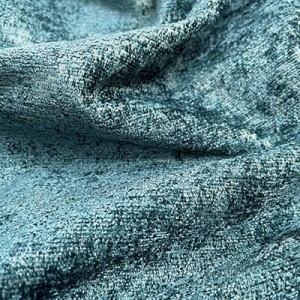
Chenille fabric is distinguished by its unique characteristics, making it a popular choice for both home décor and fashion. Here are its defining features:
Chenille Features
Luxurious Texture
Soft & Plush : Chenille has an ultra-soft, velvety pile that feels cozy against the skin.
Fuzzy Surface : The twisted yarn creates a slightly fuzzy, caterpillar-like texture.
Excellent Drapability
Flows smoothly, making it ideal for curtains, robes, and draped garments.
Durability
High-Quality Types: Blends (e.g., polyester-cotton) resist pilling and wear.
Considerations: Lower-quality chenille may shed or fray over time.
Visual Appeal
Rich Look : The textured surface gives a luxurious, high-end appearance.
Light Reflection : Fibers catch light differently, creating subtle sheen.
Warmth & Insulation
The dense pile traps heat, perfect for blankets, winter wear, and upholstery in cold climates.
Versatility
Home Textiles: Sofas, pillows, throws, curtains.
Fashion: Sweaters, scarves, loungewear.
Accessories: Bags, rugs, upholstery.
Why Choose Chenille?
• Unmatched softness & comfort
• Warm yet breathable
• Elegant aesthetic for home & fashion
• Requires gentle handling to maintain quality
Material Comparison
| Feature/Fabric | Chenille | Velvet | Fleece | Cotton |
| Texture | Soft, plush, fuzzy pile | Smooth, dense short pile | Fluffy, knit-like | Natural, breathable |
| Warmth | High | Moderate | Very High | Low |
| Drape | Excellent | Luxurious | Poor, bulky | Moderate |
| Durability | Moderate, snag-prone | Crush-prone | Pill-resistant | Hard-wearing |
Key Distinctions
vs. Velvet: Chenille is more textured and casual; velvet is formal with a glossy finish.
vs. Fleece: Chenille is heavier and more decorative; fleece prioritizes lightweight warmth.
vs. Cotton/Polyester: Chenille emphasizes luxury and tactile appeal, while cotton/polyester focus on practicality.
Recommended Chenille Laser Cutting Machine
At MimoWork, we specialize in cutting-edge laser cutting technology for textile production, with a particular focus on pioneering innovations in Sunbrella solutions.
Our advanced techniques tackle common industry challenges, ensuring impeccable outcomes for clients across the globe.
Laser Power: 100W/150W/300W
Working Area (W * L):1600mm * 1000mm (62.9” * 39.3 ”)
Laser Power: 100W/150W/300W
Working Area (W * L): 1800mm * 1000mm (70.9” * 39.3 ”)
Laser Power: 150W/300W/450W
Working Area (W * L): 1600mm * 3000mm (62.9’’ *118’’)
Application of Chenille Fabric
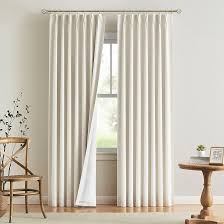
Home Décor & Furnishings
Upholstery:Sofas, armchairs, and ottomans benefit from chenille’s durability and plush feel.
Throws & Blankets:Chenille’s warmth makes it ideal for cozy winter blankets.
Curtains & Drapes:Its heavy drape blocks light effectively while adding texture.
Cushions & Pillows:Decorative pillows gain a luxurious touch with chenille.
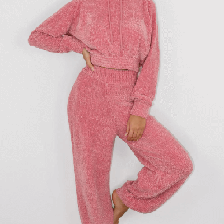
Fashion & Apparel
Winter Wear :Sweaters, cardigans, and scarves provide soft warmth.
Loungewear :Robe and pajama sets offer comfort against the skin.
Dresses & Skirts :Flowing designs benefit from chenille’s elegant drape.
Accessories :Gloves, hats, and shawls combine style and function.
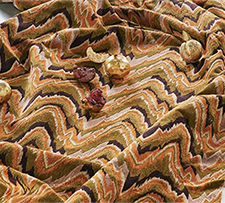
Automotive & Commercial Use
Car Interiors:Seat covers add luxury while resisting wear.
Hospitality Textiles :Hotels use chenille throws for a premium guest experience.
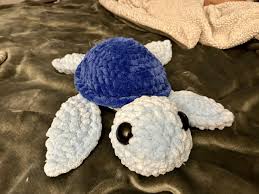
Crafts & Specialty Items
DIY Projects:Wreaths and table runners are easy to craft.
Stuffed Toys:Chenille’s softness makes it perfect for plush animals.
Related Videos
Can You Laser Cut Nylon (Lightweight Fabric)?
In this video we used a piece of ripstop nylon fabric and one industrial fabric laser cutting machine 1630 to make the test.
As you can see, the effect of laser cutting nylon is excellent.Clean and smooth edge, delicate and precise cutting into various shapes and patterns, fast cutting speed and automatic production.
Awesome!If you ask me what is the best cutting tool for nylon, polyester, and other lightweight but sturdy fabrics, the fabric laser cutter is definitely NO.1.
Denim Laser Cutting Guide | How to Cut Fabric with a Laser Cutter
Come to the video to learn the laser cutting guide for denim and jeans.
So fast and flexible whether for customized design or mass production it is with the help of fabric laser cutter.Polyester and denim fabric are good for laser cutting, and what else?
Any Question to Laser Cutting Chenille Fabric?
Let Us Know and Offer Further Advice and Solutions for You!
Laser Cut Chenille Fabric Process
Laser cutting chenille fabric involves using a high-precision laser beam to melt or vaporize fibers, creating clean, sealed edges without fraying. This method is ideal for intricate designs on chenille’s textured surface.
Step-by-Step Process
Material Preparation
Fabric Type: Use blended chenille (e.g., polyester-cotton) for better heat resistance.
Layering: Flatten the fabric to avoid uneven cuts.
Machine Setup
Laser Type: CO₂ laser for synthetic blends
Power & Speed: Low power + high speed → Fine details
High power + slow speed → Thick chenille
Cutting Process
Sealed Edges: Laser heat melts fibers, preventing fraying.
Ventilation: Required to remove smoke from melted synthetic fibers.
Post-Processing
Brushing: Lightly brush off burnt residue (optional).
QC Check: Ensure no scorch marks on delicate designs.
FAQS
Primary Chenille Materials:
Cotton Chenille
Natural, breathable and ultra-soft
Best for lightweight blankets and summer apparel
Requires gentle care (may shrink if machine dried)
Polyester Chenille
Most durable and stain-resistant type
Holds shape well, ideal for furniture upholstery
Affordable but less breathable
Acrylic Chenille
Lightweight yet warm, often used as wool alternative
Budget-friendly but prone to pilling over time
Common in affordable throws and scarves
Wool Chenille
Premium natural fiber with excellent warmth
Moisture-wicking and temperature regulating
Used in high-end winter coats and blankets
Rayon/Viscose Chenille
Has beautiful drape and slight sheen
Often blended with cotton for strength
Popular for drapery and flowing garments
Material Composition
Premium: Wool or high-grade cotton-polyester blends
Budget: Low-density acrylic or synthetic-heavy mixes (may pill/shed)
Weight (GSM)
Lightweight (200-300 GSM): Cheaper, for decorative use
Heavyweight (400+ GSM): Durable for sofas/carpets
Pile Density
High-quality chenille has tightly packed, even pile that resists matting
Poor quality shows uneven patches or sparse fuzz
Manufacturing
Double-twist yarn construction lasts longer
Singed edges prevent fraying
Yes! Ideal for:
Winter sweaters
Robes/loungewear
Avoid tight-fitting designs (due to thickness).
Home Care:
Hand wash with mild detergent in cold water.
Air dry flat .
Stains: Blot immediately; avoid rubbing.
Depends on fibers:
Recycled polyester-chenille: Sustainable option.
Conventional acrylic: Less biodegradable.


